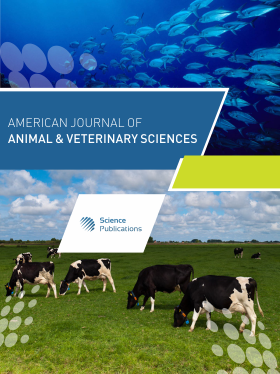Assessment of Chili Pepper (Capsicum annuum) as an Additive for the Prevention of Coccidiosis
- 1 Facultad de Ciencias Agropecuarias, Carrera de Medicina Veterinaria, Universidad Técnica de Ambato, Ecuador
Abstract
Nowadays, the use of plants is an alternative for the control and treatment of diseases in the poultry industry. The objective of this study was to evaluate the effect of chili pepper (Capsicum annuum) as a natural additive for the prevention of coccidiosis in broilers up to 8 weeks of age. For this experiment were used 288 Ross 308 chickens of one day distributed in 4 treatments, 6 repetitions and 12 animals in each group, where the treatment was applied (T1 0.1; T2 0.2; T3 0.3; T0 0%) Chili pepper. A Completely Randomized Design (CRD) was carried out, with an analysis of variance and the Tukey 5% test for the treatments, the variables oocyst count per gram of faeces and various productive parameters were evaluated, Finally, it was demonstrated that the best dose of natural coccidiostat with the best performance both in weight gain and feed conversion was with the dose of 0.3% of chili peper, in addition, with this percentage the amount of Eimeria oocytes was reduced, preserving the intestinal health of the animals. This study contributes to have a better production alternative and competitiveness in the face of the new demands of chicken consumption in the market.
DOI: https://doi.org/10.3844/ajavsp.2022.97.100

- 5,006 Views
- 4,120 Downloads
- 3 Citations
Download
Keywords
- Broilers
- Coccidiosis
- Capsicum Annuum
- Eimeria Oocytes
